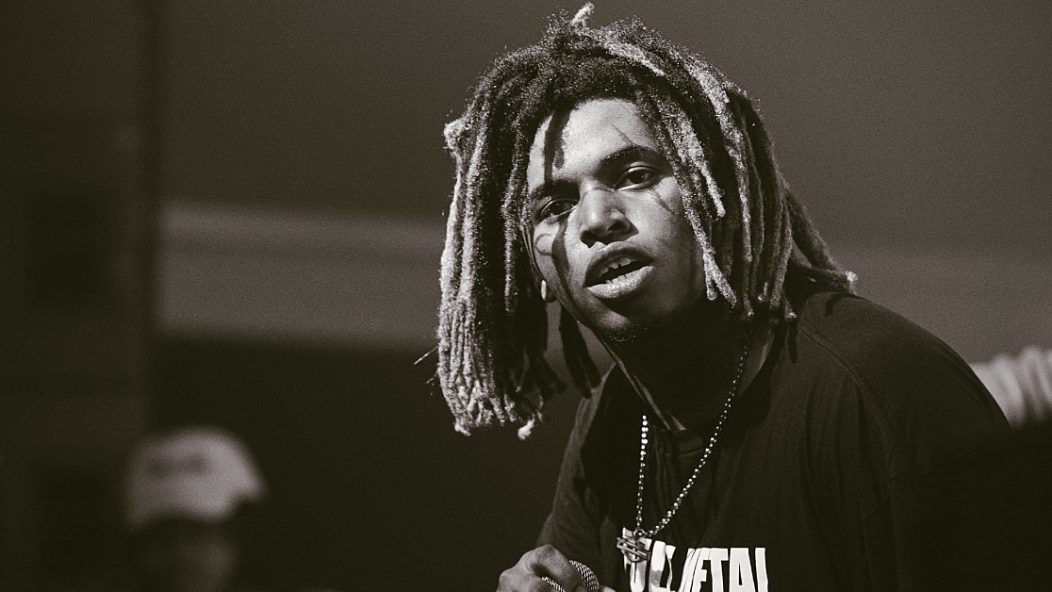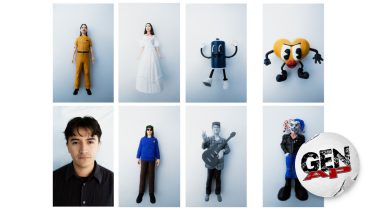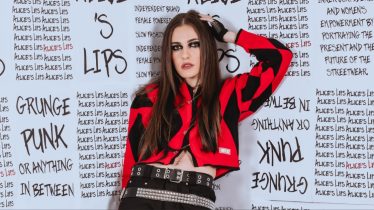
ZillaKami believes new experiences will lead to his next sonic avenue—interview
To reduce ZillaKami’s music to strictly hip-hop would be a disservice not only to his artistry but to him as a person. He’s open about the fact that he shouldn’t be categorized simply based on his appearance, growing tired of the box the industry often tries to put him in and gatekeepers who don’t accept the true scope of his music.
Choosing to keep his songwriting circle small, ZillaKami only works with a few close collaborators who share his vision of writing music that’s entirely original, never willing to show their cards or the formula behind his distinct sound to prevent creating more imitators who’ve tried in vain to replicate his style. Lyrically, ZillaKami ranges from confidence, aggression and braggadocio, juxtaposed with introspection, self-critique and existential dread. In turn, it creates a complex character who’s both enigmatic and relatable.
Read more: Corey Taylor releases details on ‘CMFB…Sides,’ covers “On The Dark Side”
On his latest release, DOG BOY, the music meanders between grunge-inspired tales of self-deprecation and reflective takes on mental health to chaotic arrangements with venomous vocal deliveries that could rival Slipknot’s heaviest material. In talking with ZillaKami, he paints a clear picture that he’s an artist who is never willing to stay in one lane. Instead, he chooses to innovate and leave his mark on whatever he touches, only to seek out the next thing to dominate and disrupt.
Your music has elements of grunge, nü metal and hardcore. Where do these influences come from specifically?
I can’t tell you where I get the swag from. [Laughs.] It’s too close to home — I can’t tell you all the bands. Everyone knows the normal shit I listen to, but I can’t give people the cool bag of tricks. No one can know. You will only get it on the surface level.
What has the response been like since DOG BOY came out? Has anything changed, and has it been a whirlwind of sorts?
Not really. It’s not that exciting. I still live in the same house and do the same shit every day, so I didn’t see my life change.
How has it felt to be looked at as a pioneer of trap-metal, and what do you make of your contributions to the genre as well as the imitators who may have popped up since?
I feel like I monopolized it, so nobody can really do it as good as me, so it doesn’t really matter. Me and SosMula [City Morgue] have the full monopoly on this genre, and whoever comes out and tries to do it literally is just trying to be us.
On your latest release, Corey Taylor from Slipknot is featured on the intro for “Chewing Gum!” Do you want to collaborate more with people from that era of rock?
I’m not really sure. It’s so hard to collaborate with rock artists now because you realize that they are 40 and 50 years old and don’t know how to rap on my type of music. I could rap on theirs because I grew up listening to them, but they didn’t grow up making my shit, so it’s hard for them to get on my type of beats and do good. I don’t want to be that dude who’s like, “Oh yeah bro, this is a bad verse. Can you resend me this, Jonathan Davis, Corey Taylor?” [Laughs.] I can’t say that to fucking Corey Taylor, so I just keep it at the homie level.
How does your solo project compare to your writing process with City Morgue?
When I’m at my house, I go to the studio every day to try to make just one song. These are just songs that I threw on a project, and people think this is super deep, but this is literally just a bunch of songs I made by myself. I wake up, make a cool guitar riff, put drums behind it and then I’ll start rapping.
Have you ever wanted to bring a full-band element to your live show?
I’d bring a guitar dude on, but I feel like live drums sound bad, in my opinion. They just clutter every other instrument, so I don’t want to try to rap over some crazy-ass percussion in the background. [Laughs.]
Your music is constantly evolving and changing. What can we expect from you next, sonically?
I don’t know. I’m listening to a lot of Phish. They’re pretty dope, but I don’t know if it’s gonna change my music. I’m stuck right now and am gonna leave and go to a cool place and try to culture shock myself into finding a new genre because I feel like I’ve done this too long. People know I won’t release music until it’s good.
What do you have to say to the gatekeepers who have critiqued your music?
Anthony Fantano [YouTuber behind The Needle Drop] gave my album a 2/10. First of all, a lot of people just call me a rapper when I blatantly wasn’t rapping for 90% of the album. I was watching a Kanye West interview, and he said that when you are a true artist and you call someone a rapper, it is like calling them the N-word, as a Black artist, because you’ll try to do something completely different, and nobody appreciates what you are doing and just calls it some other shit.
People say I use digital guitars, but no, these are live guitars, and we worked on these riffs for mad long, just as much as every rock star has. People idolize these dudes, who I do the same amount of work as, but I have less people. I have two producers and an engineer with me, and I’m making a product that’s just as good as people were making in the ’90s.
What can we expect from you next?
I want to release the next song as a short film, so it will just be me soundtracking a short film. That will be the next thing I drop.
This interview first appeared in issue #402 (22 for ‘22), available here.









